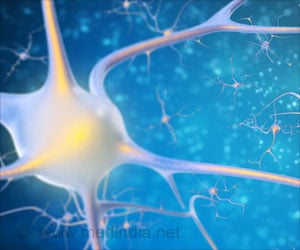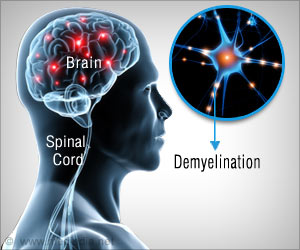Molecular therapy which helps restore nerve insulation might help develop treatment for people with autoimmune diseases.

TOP INSIGHT
Inhibiting an enzyme called HDAC3 in mice increased the expansion of schwann cells which form the protective insulating layer of nerve cells called myelin.
The molecular compounds target the enzyme HDAC3 (histone deacetylase 3). Study data show that HDAC3 inhibits regenerating insulation on recovering peripheral nerves.
"Remarkably, temporary inhibition of HDAC3 robustly accelerated the formation of myelin that helps insulate peripheral nerves," says the study's principal investigator Q. Richard Lu, PhD, director of the Cincinnati Children's Brain Tumor Center. "This promoted functional recovery in the animals after peripheral nerve injury."
Restoring Signal Relays
The peripheral nervous system relays signals from the brain and spinal cord (the central nervous system) to limbs and organs. HDAC3 is an enzyme found in humans and mice. Its usual job in peripheral nerve formation is to act as a molecular brake on the production of the myelin coating by Schwann cells.
Timing is Crucial
Getting the timing right on transient treatment is critical, Lu says. Researchers show that blocking HDAC3 for too long allows myelin to overgrow and cause excessively thick insulation. This also can lead to functional problems in extremities, according to study data.
From Science to Medicine
Translating data in the current study to clinical application in human patients will require extensive additional research, Lu says. Now that the prospective therapy has been successfully tested in mice, researchers are exploring additional research in animal models that more closely mimic the repair of injured peripheral nerves in people. This includes looking specifically at some demyelinating diseases that affect the central nervous system, such as multiple sclerosis.
Lu said this work will allow scientists to replicate and verify their findings in mice and other laboratory models. They also will be able to test possible dosing levels. If results are positive, Lu said researchers could pursue possible Phase I clinical trials in patients having deficient myelin in their peripheral and central nervous systems.
Source-Eurekalert
 MEDINDIA
MEDINDIA



 Email
Email










